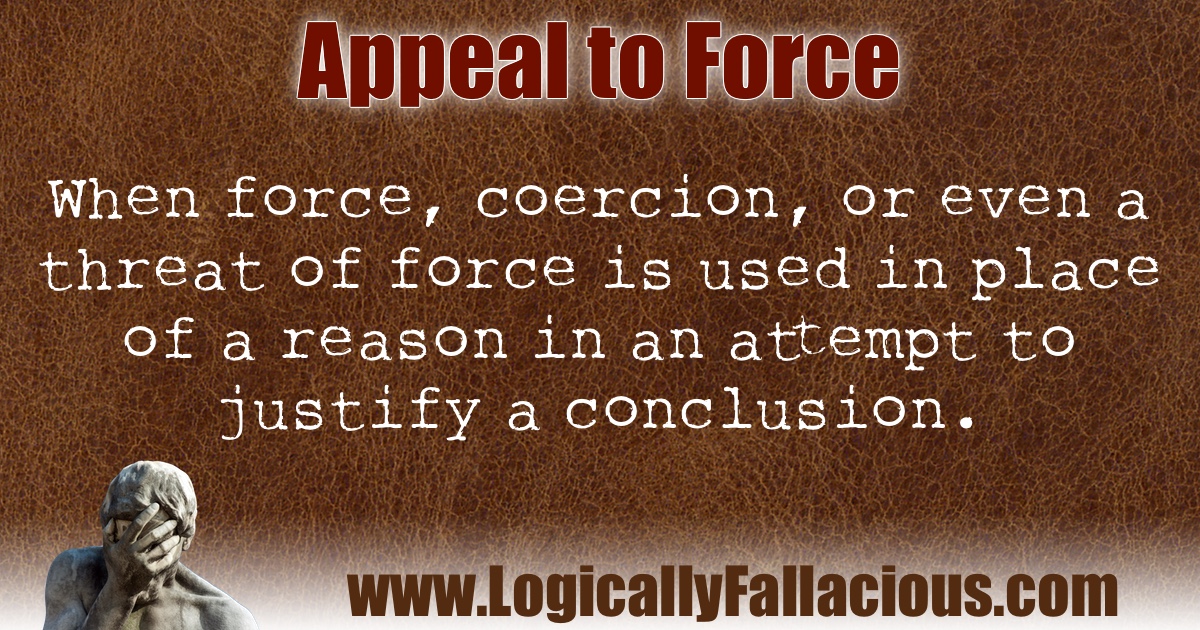argumentum ad baculum
(also known as: argument to the cudgel, appeal to the stick)
Description: When force, coercion, or even a threat of force is used in place of a reason in an attempt to justify a conclusion.
Logical Form:
If you don’t accept X as true, I will hurt you.
Example #1:
Melvin: Boss, why do I have to work weekends when nobody else in the company does?
Boss: Am I sensing insubordination? I can find another employee very quickly, thanks to Craigslist, you know.
Explanation: Melvin has asked a legitimate question to which he did not get a legitimate answer, rather his question was deflected by a threat of force (as being forced out of his job).
Example #2:
Jordan: Dad, why do I have to spend my summer at Jesus camp?
Dad: Because if you don’t, you will spend your entire summer in your room with nothing but your Bible!
Explanation: Instead of a reason, dad gave Jordan a description of a punishment that would happen.
Exception: If the force, coercion, or threat of force is not being used as a reason but as a fact or consequence, then it would not be fallacious, especially when a legitimate reason is given with the “threat”, direct or implied.
Melvin: Boss, why do I have to wear this goofy-looking hardhat?
Boss: It is state law; therefore, company policy. No hat, no job.
Tip: Unless you are an indentured servant (slave) or still living with your parents (slave), do not allow others to force you into accepting something as true.

References:
Jason, G. (1987). The nature of the argumentum ad baculum. Philosophia, 17(4), 491–499. https://doi.org/10.1007/BF02381067